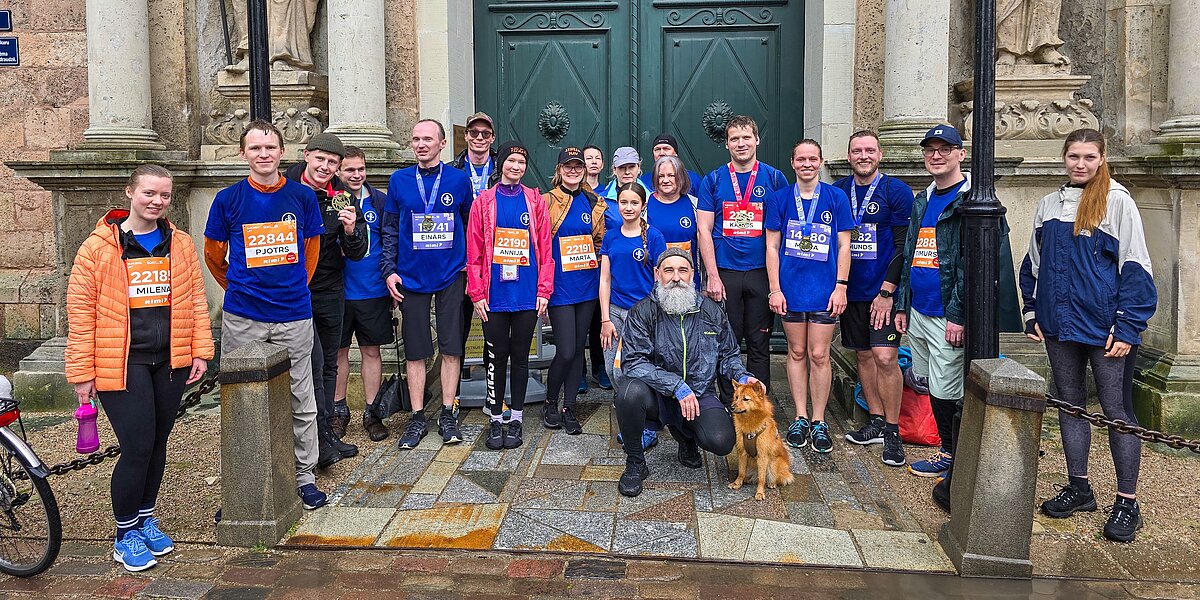
17-18 May makes way for one of the most ambitious national sports events in the Baltic States – the Rimi Riga Marathon, attracting tens of thousands of runners from all over the world. This year, participants also include several researchers from the Institute of Solid State Physics, University of Latvia (ISSP UL), which shows that we like to go far – both in science and on the track!
In total, 28 ISSP UL athletes are taking part in the marathon. There are 17 scientists running the 6 km distance, six in the 10 km distance, three in the 21 km distance, and one each for the 1.6 km and 42 km disciplines.
One of our researchers, Gusts Agafonovs, is running the full marathon distance (42 km). We asked him a few questions to find out more about what motivates him, helps him prepare and how it all fits in with science.
How long have you been running?
For seven years, but I must admit that these years were not always dedicated to athletics. There have been more active and more relaxed periods, but movement has always been a part of my life.
What motivates you to run such a long and challenging distance?
The desire to run a full marathon came spontaneously and somewhat amusingly. Last year I only did the 5 km, but I didn't really like the medal in the end. However, the one for marathoners was much prettier, more visually appealing. So, I decided to run the full marathon next year to give myself a nice and well-deserved prize.
Is this your first marathon?
Yes, this will be my first. I don't know what to expect, but for now the main plan is simple – be at the starting line on time.
What is the most difficult part of the preparation process?
The most challenging thing for me was to get into a regular training rhythm that would fit with my studies, work and, of course, sleep. Once I did that, all I had to do was follow the plan and keep moving forward.
What gives you the most pleasure or satisfaction in this adventure?
The greatest joy is knowing that I’ll be able to fulfil my own set goal. It is a step towards new heights and growth. There’s also the satisfaction of knowing that all the effort and time invested has paid off. Although I could go on describing this feeling, I am sure that simply sitting down after the finish will be the most satisfying moment.
How does running help your scientific work?
Running is a catalyst for my personal success. It's not just physical exercise, but also builds character, determination, the ability to plan and stay focused – all skills that are directly applicable to study and work. That’s why I see running as a great way to take a break from everyday responsibilities and at the same time continue to develop myself.
We are glad that the determined hearts of these runners are beating right here in our Institute, driving progress with their passion!